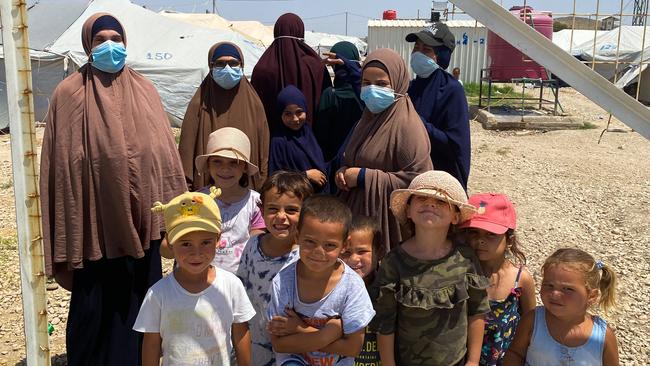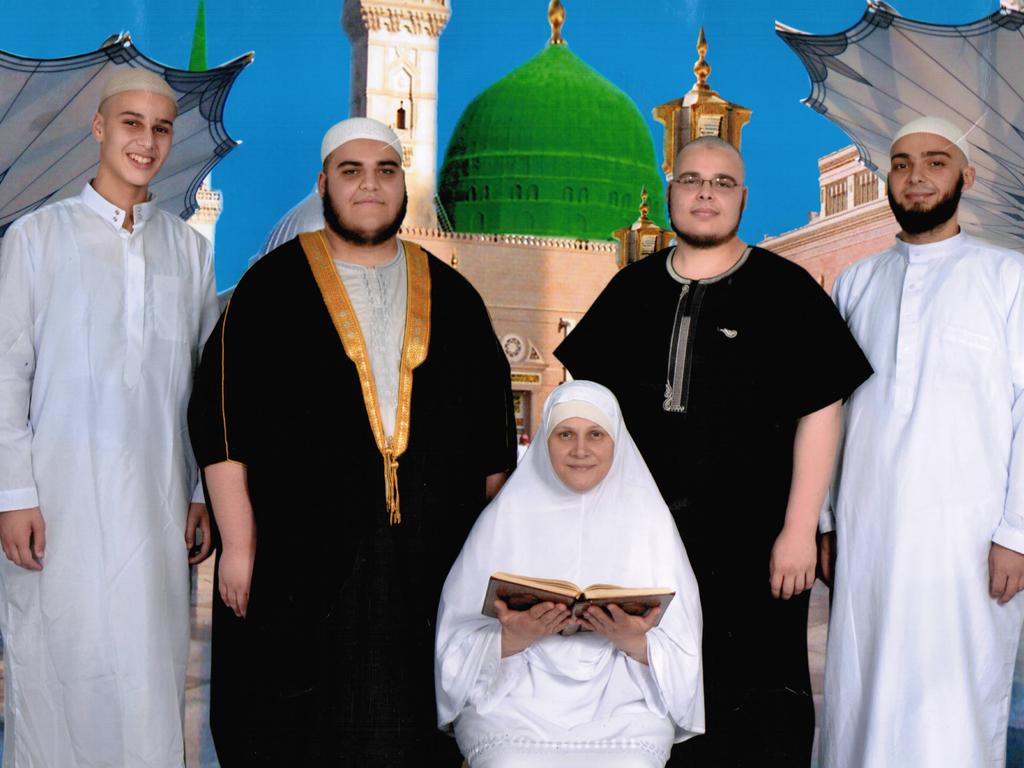Secret ASIO mission to save IS families in Syria
A secret ASIO mission into Syria has cleared the way for the families of Islamic State members left behind in camps there to be repatriated to Australia.

A secret ASIO mission into Syria has cleared the way for the families of Islamic State members left behind in camps there to be repatriated to Australia.
The government is putting the final touches on a rescue plan to bring back the 16 Australian women and 42 children held in al-Roj detention camp near the Iraqi border.
They have been held without charge in northeastern Syria for 3½ years, following the fall of Islamic State at Baghouz in March 2019.
ASIO cleared the rescue mission after visiting al-Roj in late August and early September, carrying out final risk assessments on the group and on their extended families in Australia.
Their visit to the camps came after The Australian revealed in July that a push was on to finally repatriate the families, amid fears their continued detention was leading to a national security and humanitarian disaster.
The Australian also revealed that an Australian child, Yusuf Zahab, locked up in prison since the age of 14, appeared to have died in the prison system at the age of 17.
It was ASIO’s first known mission into northeastern Syria since August 2019, when agents visited the prison and the camps housing those who had surrendered to the Kurdish Syrian Democratic Forces after Islamic State’s last stand.
The families are likely to be brought back in stages over coming months, with those deemed the most vulnerable first in line to be returned to Australia.
The Syrian Democratic Forces, tasked with securing the camps, have told the Australian women in al-Roj to prepare to go home.
American officials were also in al-Roj about the same time as the Australians. The women were asked if they still wished to return to Australia. The Americans have offered to provide on-the-ground support for foreign countries seeking to repatriate their citizens from Syria, as has the de facto government of the region, the Autonomous Administration of North and East Syria.
The first, most vulnerable group will include women who were trafficked or coerced by their parents or husbands to enter Syria. It is highly likely these women will face no charges when they return to Australia.
Other women returned later would potentially face charges of entering the proscribed area of al-Raqqa.
State agencies in Melbourne and Sydney, including police, housing, child welfare and justice, are readying for the families to return.
Significant work will be done to help them readjust and reintegrate into society.
Some of the children have never been to school – five were born in the detention camps, and dozens were either born under Islamic State rule or were too young to remember life in Australia before their parents took them to Syria.
It is believed the national security committee of cabinet ticked off several weeks ago on the decision to start repatriating the families.
Home Affairs Minister Clare O’Neil’s spokesman said: “The Australian government’s overriding priority is the protection of Australians and Australia’s national interest, informed by national security advice. Given the sensitive nature of the matters involved, it would not be appropriate to comment further.”
The return of the women, who have all agreed to voluntarily submit to control orders, will result in a major surveillance and monitoring program by federal and state police and intelligence agencies. Most of them are sick and some are injured; all the women and children have been subjected to trauma.
The first families are likely to be returned to Sydney, with other families to return later to Melbourne.
Family groups inside the camp include Mariam Raad and her four children, and her sister-in-law Mariam Dabboussy and her three children.
The women are the wives of Islamic State members and brothers Muhammad Zahab and Khaled Zahab, who were both killed in airstrikes. Their mother-in-law, Aminah Zahab, is also in the camp, as is a cousin, Nesrine Zahab, and her son.
Shayma Assaad and her four children are considered among the most vulnerable. Aged just 22, she was taken to Syria as a 15-year-old by her parents, Bessima and Ahmad Assaad.
Her little sisters Assya, now 15, and Maysa, now 12, would also likely be among the first to be returned. They were just eight and five when they were taken into Syria.
Her husband, Mohammed Noor Masri, is in jail in Syria, as is her father.
About a dozen Australian men are incarcerated there without charge but the Australian government does not have a plan to repatriate them, many of whom fought for Islamic State and are considered a much more significant threat than the women.
A few women and children still in al-Hol camp are not being considered for repatriation at this stage.
Another orphaned child, believed to be the son of Australian Islamic State doctor Tareq Kamleh, was suddenly taken from al-Roj camp in late September, where he had been living with another of Kamleh’s wives.
She is not his biological mother and there are fears he may end up in a French orphanage, although activists are working to have him raised with the young sibling with whom he has spent most of his life.
A spokesman for the detained families, Kamalle Dabboussy, whose daughter Mariam and three grandchildren are in al-Roj, said he had not been notified by the Australian government that repatriation was imminent but it would be “an incredibly exciting prospect’.’
“It’s every parent’s wish to ensure their children are safe,’’ he said. “The welfare of these children is paramount so it’s important that every Australian woman and child is brought home. The families just want to welcome them home and would happily co-operate with all levels of government to make that happen.’’
Save the Children Australia chief executive Mat Tinkler, who has been campaigning for years for the women and children to be repatriated, said it would be “welcome news’’ if they were returned.
“For more than three years, these children have been trapped in one of the worst places in the world to be a child and their situation has been growing increasingly desperate. I saw these conditions first-hand when I travelled to Roj camp in northeast Syria in June,’’ he said.
“Australian children are poorly nourished, suffering from untreated shrapnel wounds and the situation is impacting their mental health.
“They are just hanging on.
“The possibility that they could finally be brought home to safety in Australia will be an enormous boost for their families.’’







To join the conversation, please log in. Don't have an account? Register
Join the conversation, you are commenting as Logout